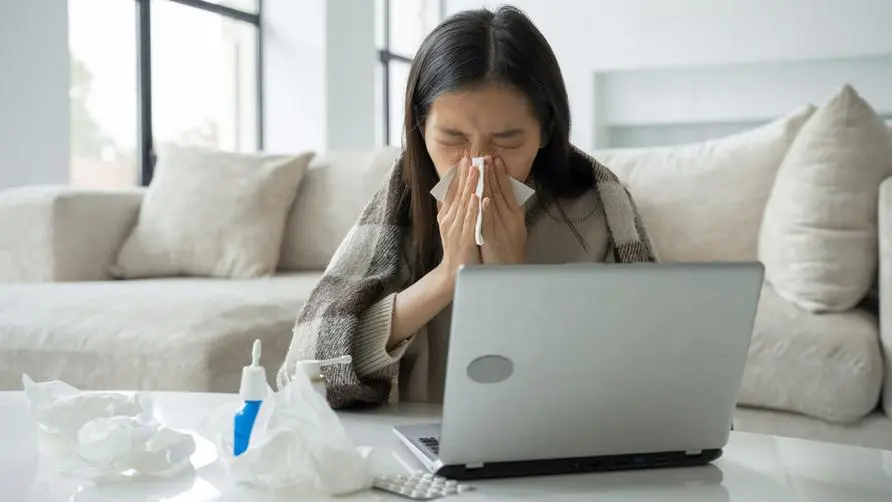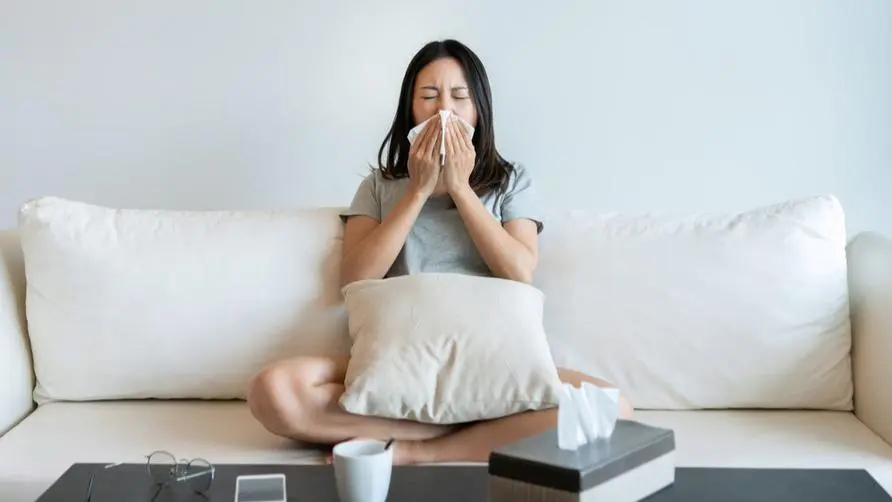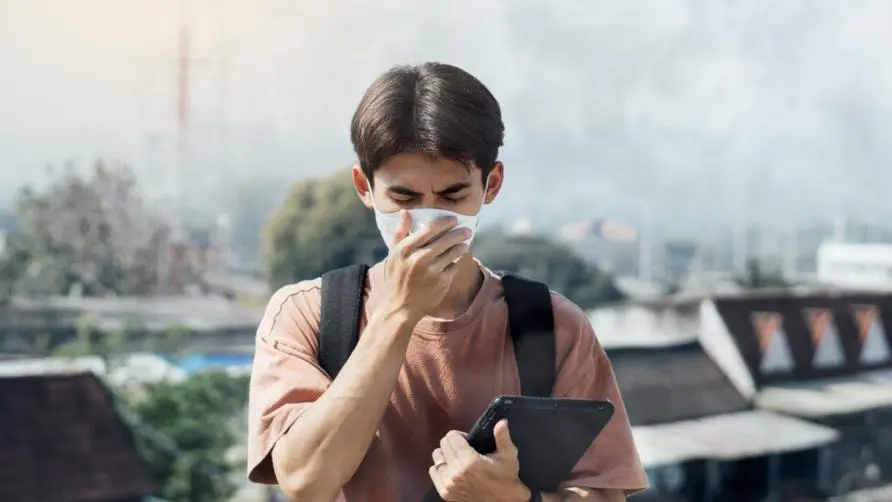Is your nose itchy during the change of seasons? "4 Things" May Worse Symptoms! Doctors teach "2 tricks" to defeat allergic rhinitis

healthorn expert Q&A
Q: Is your nose itchy when you get home? Are there carcinogens in the air?
A: If you have frequent coughing, sneezing, itching or allergies at home, you should pay attention to whether it is a poisoning symptom caused by “excessive formaldehyde”. If you live in an environment with excessive formaldehyde for a long time, it may seriously cause infertility, leukemia, and sinus cancer. , liver cancer, etc. The wood used in decoration or the new furniture purchased (mattresses, sofas, curtains) will release a large amount of “carcinogen formaldehyde”. Even if non-toxic building materials are used, there is still a risk that the accumulated formaldehyde in the whole room will exceed the standard.
If you want to solve the problem of formaldehyde poisoning, it is recommended to seek formaldehyde removal companies for formaldehyde treatment. However, allergic children should pay special attention to whether the manufacturer uses “formaldehyde” to remove formaldehyde. After all, chitin is one of the common allergens. If you are not careful, It may induce chitin allergy. Especially for infants and young children, people who are allergic to seafood, and people with cystitis, because chitin is taken from the shells of crustaceans such as shrimps and crabs, it may cause various allergic reactions after contact, such as asthma and allergic rhinitis. , skin problems, etc., so you should try to avoid choosing formaldehyde removal companies that use “chitin” as coatings.
Why is my nose prone to allergies when the seasons change? What factors make allergic rhinitis worse?
During the change of seasons, the difference in temperature changes is a considerable source of irritation to the mucous membranes of allergic patients, which often induces many allergic immune reactions, such as constant sneezing, runny nose, etc., and even Symptoms of itchy skin and eyes appear.
In addition, nasal allergies may be more severe if the following conditions occur at the same time:
Food allergies (mostly eggs, milk, peanuts, nuts, shelled seafood, etc.)
Inhalant allergens (dust mites, cockroaches, pet hair, mold, pollen)
Pungent odors (the smell of incense used to say goodbye, the smell of paint, the smell of oil smoke)
Harmful tiny particles in the air (air pollution, exhaust gas, PM2.5 and second-hand smoke)
And can allergies be “inherited” to children? This is a question that many parents ask during the clinic. According to current research, allergies are a polygenic inheritance. However, when one parent has allergies, about 30-40% of the children will also have allergies; if both parents are allergic, the child will also have allergies. to 70-80%, and you may even need to pay more attention to allergic diseases other than nasal allergies, such as asthma or atopic dermatitis.
Are nose allergies often co-morbid with “red and itchy eyes”? What diseases are likely to occur together with rhinitis?
Patients with allergic rhinitis often experience red and itchy eyes, which often occur together with sneezing and runny nose. This type of seasonal “allergic conjunctivitis” is quite common and has mild symptoms. It is mainly allergic to pollen or spores of specific plants. The symptoms are short-lived and rarely affect vision. Patients may also suffer from wheezing, sneezing or runny nose. Nose and other allergy symptoms.
As for asthma patients, asthma, allergic rhinitis, and atopic dermatitis are the legendary “Three Allergy Brothers”. They are all diseases that children with allergies often have at the same time. However, the period of more common attacks and the intensity of symptoms will vary. It varies with age. Atopic dermatitis is more common in children. It is more common and obvious between two and three months old and two years old. Most of it will gradually subside when you grow up. Asthma will take over at about two years old. If you have it during this period, Parents need to pay more attention to some respiratory symptoms; at the same time, allergic rhinitis often begins to appear.
How can newborns and young children avoid allergic rhinitis? It mainly depends on the efforts of parents. Some scientific journals pointed out that during pregnancy and breastfeeding, mothers’ moderate supplementation of probiotics and fish oil can help reduce children’s allergic constitution. Next comes various environmental cleaning and air quality control.
What measures can be taken to prevent allergic rhinitis? Are diet and sleep affected?
How to prevent allergic rhinitis? There are mainly two main axes: “allergen control” and “regulation of allergic immune response.” The part of allergen control is relatively common and easy to understand, such as regularly cleaning the home to remove insects, and using an air purifier, dehumidifier or full heat exchanger to adjust the air quality and humidity in the home. Change quilts, bed bags, pillowcases, and clothes as often as possible. It is recommended to wash them once a week and use high temperature to more completely remove dust. Always wear a mask when going out. When you get home, you can try to rinse your nasal cavity with a neti washer to reduce allergen residues.
As for how to regulate allergic immune responses, most patients with such allergies recommend that they maintain regular exercise so that the immune system can better maintain balance. In addition, you can also use appropriate probiotic strains to regulate the body’s immune function through the gastrointestinal tract. In addition, if the symptoms are severe, it is still recommended to seek professional evaluation and treatment in a hospital or clinic!
Further reading:





